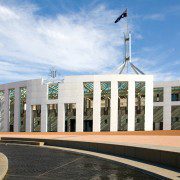The Icarus effect and the VW Diesel Scandal
Only weeks ago, VW CEO Martin Winterkorn must have been celebrating a new multi-year extension of his reign at one of the largest companies on earth. Just days ago, at the Frankfurt Motor Show, he confidently predicted that VW would secure the world automotive manufacturer number one spot. Today VW’s reputation is in tatters and he is gone.
It is safe to say that when the German Chancellor takes time out from dealing with thousands of refugees beating down the door to admonish your company and launch an investigation how you cheated emissions regulations, your days at the top are at an end.
Shooting for the automotive number one position seems to come with a curious Icarian curse. Ford suffered the Firestone /Explorer crisis, GM the faulty ignition switches, Toyota the floor mats sticking accelerators down and the Takata airbags and now VW.
In fairness to VW no customer’s lives are at risk (unless they breath-in too many exhaust fumes). In fact it is almost unique amongst such automotive industry failures given that vehicle operators are not at any risk. The risk is all at the company end. As the scale of the deception continues to unfold the reputation of VW, to say nothing of the share price, will take hit after hit.
A brand is a trust-mark and VW have shown they cannot be trusted. They have been devilishly clever, but they cannot be trusted. At least not the current management who must have/should have known about the highly sophisticated masking of emissions performance.
A senior management, and probably a board level, blood-letting will ensue. VW will, of course, survive but many more dark days are to come before one of the most recognisable brands in the world can regain the consumer and community trust it craves and needs.




